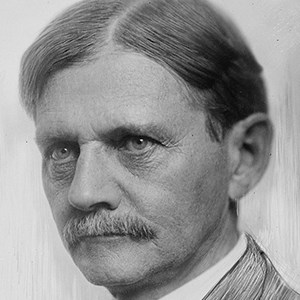Thomas R. Marshall, a progressive member of the Democratic Party, served as the 28th Vice President of the United States under Woodrow Wilson. He famously declined to assume the presidency after Wilson became incapacitated during his second term.
Early Life
Thomas Riley Marshall was born in 1854, in North Manchester, Indiana. He attended Wabash College and was admitted to the Indiana bar in 1875. After becoming a prominent member of Indiana’s Democratic Party, Marshall was elected governor in 1908. As governor, Marshall enacted a number of progressive reforms, including child labor regulations and anti-corruption initiatives.
Political Career
As the popular governor of a pivotal swing state, Marshall was an attractive candidate for national office. While Woodrow Wilson would have liked a more progressive running mate, he reluctantly chose Marshall because he rounded out the ticket. With the Republican Party fractured between President William Taft and former President Theodore Roosevelt, Wilson and Marshall easily won the election.
Once elected, Woodrow limited Marshall’s involvement in the administration and rarely consulted with him regarding policy decisions, causing Marshall to remark, “I was the Wilson administration’s spare tire – to be used only in case of emergency.” Nonetheless, Marshall was the first Vice President to preside over cabinet meetings, filling in for Wilson while he attended the World War I peace talks in Europe.
Later Career
Marshall also played a prominent role in the U.S. Senate. When anti-war Senators sought to block key legislation needed to support the war, the Vice President helped enact a new rule that allowed filibusters to be broken by two-thirds of voting Senators. Marshall also traveled around the country to deliver morale-boosting speeches in support of the war
When Wilson suffered a stroke in 1919, Marshall was not informed of the seriousness of the President’s condition. When he did learn of Wilson’s incapacitation, Marshall elected not to push to become acting president, although the Constitution did allow for it. The lack of leadership ultimately resulted in the passage of the 25th Amendment, although decades later.








